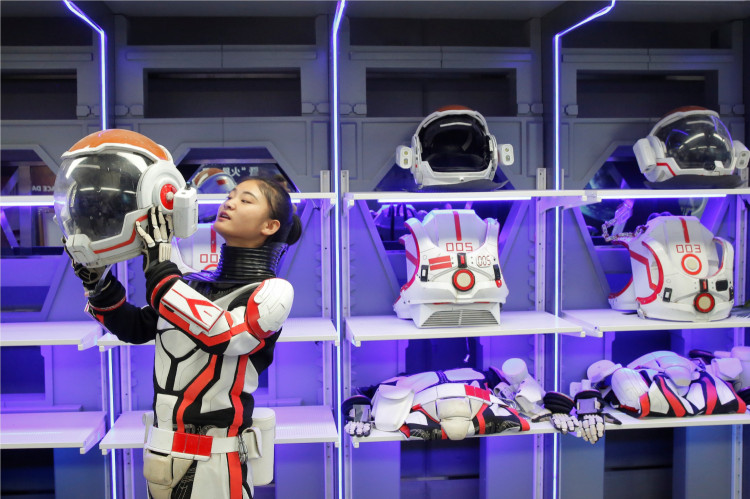China's Mars simulation base in the barren windswept hills of Gansu province welcomed the five-hour tour of 100 Chinese teenagers to its space colony that looks like a deserted plant.
On Wednesday, the facility opened its doors to the public. It is comprised of several interconnected modules that include a greenhouse and a mock decompression chamber.
The facility, known as Mars Base 1 Camp, covers an area about one-fifth of an American football field. It is the brainchild of a media company and officials in Gansu province in the northwest of China. The camp was built in hope to boost the tourism in the province and it also aims to allow visitors to feel as though they have visited the red planet.
The government plans to add an additional 2.5 billion yuan to expand the site to 67 sq.km as they hope to attract 2 million visitors a year by 2030. According to Jinchang, one of the visitors, they are very excited to visit the camp.
The 13-year-old student said that they saw the monolith, a crater, and a cave. The student added that it is better than what they imagined Mars will look like.
The monolith resembles the image in the 1968 science fiction film "2001: A Space Odyssey" Where a mysterious black monolith appears before a tribe of man-apes in one of the most memorable scenes in the Western movie history.
China has invested a lot in its space program. It is the first planet to land on the dark side of the moon. Its space explorations ignited imaginations and the appetite of the public for science and public appetite for science and science fiction.
Its space probe's landing on the far side of the moon in January increased its dominance in space exploration. It is viewed with pride among ordinary Chinese people. The Chinese government continues to develop powerful rockets to help them realize their dream of spending a probe to Mars. Chinese explorers are also planning to study the asteroids and even land on one.
According to Bai Fan, CEO of Jinchang Star Universe Culture & Tourism Investment Co, A nation needs people who look up at the stars. The CEO also said that they hope the bases will let them feel the spirit of space exploration and not just experience the technology behind it. Jinchang is a media company that co-developed the base. The base also serves as an astronaut-training center after it collaborated with Astronauts Center of China.





